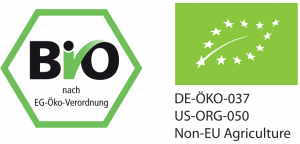Matcha is a powdered, whole leaf green tea, native to Japan. Its origins are ancient, going back to the traditional Japanese tea ceremony, yet that hasn’t stopped it from being a part of modern life. In Japan, its unique qualities and taste are loved by people from all walks of life — from old-fashioned traditionalists to stylish urbanites.
Tea has been cultivated since the dawn of civilization. First introduced in China during the 9th century, tea was brought to Japan by Zen Buddhist monks. It was not until the 12th century, however, that it became a widely popular beverage. Since then, tea has influenced every facet of Japanese culture. To this day the Japanese tea ceremony, Chanoyu, is a time-honoured tradition that literally translates to “the way of tea”.

Health Benefits of Matcha
Key Characteristics
-
Bright and lively in flavour and color
-
Fresh and grassy notes with a rich, smooth taste
-
When you drink Matcha you ingest the whole leaf
-
Celebrated for its versality and umami flavour – the 5th taste sensation – and a savoury and subtle sweetness
-
It’s high L-theanine (amino acid which effects the alpha-waves in the brain) content has inspired Matcha to be used not only as a beverage but as a cooking ingredient
Matcha Product Range
- Organic Matcha Powder
- Organic Matcha
- Green color with fresh Matcha taste
- For use in food, confectionary or beverages
Matcha Product Range
- Organic Matcha Powder
- EU Organic Matcha 70
- EU Organic Matcha 100
- Organic Matcha
- Green color with fresh Matcha taste
- For use in food, confectionary or beverages
- Organic Japanese Matcha
- Light green color with fresh and mild taste
- For use in beverages and supplements such as capsules, tablets and instant mixes

- Organic Japanese Matcha
- Light green color with fresh and very mild and soft taste
- For use as ceremonial Matcha and high-quality tea beverages

Discover The Benefits of Our Matcha








100% Organic Matcha
All Taiyo Matcha raw materials are 100% organic. Due to Taiyo’s highest quality requirements, Taiyo decided to produce only 100% organic Matcha products and to renounce the production of conventional Matcha.
100% True Matcha
Matcha tea powder is one the most faked food products in the world. Some companies use normal green tea leaves, leaves of other plants or even sand or small stones together with Matcha leaves to enhance the weight of the Matcha and to earn more profit. Taiyo’s guaranteed 100% pure Matcha without any foreign particles or plants and processed following Japanese Matcha tradition.
Matcha Powder is made of extremely small particles that release the water-soluble nutrients and polyphenols 137 times better than the usually big ungrinded tea leaves and three times better than of any other green tea (1). The milling process is also potentiating the antioxidant power and its ability to catch and destroy reactive oxygen radicals (ROS) by three times compared with the same amount of the tea leaf (4). Daily consumption of Matcha green tea was found to be very beneficial for cardiovascular health by decreasing several cardiovascular risk factors.
Among the health benefits of Matcha are:
- Lowers significantly serum and liver triglycerides (2, 3)
- Lowers total cholesterol levels in serum and liver (2, 3)
- Lowers significantly blood glucose levels (2, 3)
- Lowers significantly liver glucose levels (2)
- Lowers significantly renal AGE levels (2)
- Improves renal function and liver function (2)
- Increases plasma HDL-Cholesterol (the “good” cholesterol) (3)
- Decreases plasma LDL-Cholesterol (the “bad” cholesterol) (3)
- Increases plasma and liver superoxide dismutase (SOD) (3)
- Decreases malondialdehyde (a marker for oxidative stress) in serum and liver (3)
- Protects the liver against damages from a high fat diet (3)
- Binds and excretes toxins such as polychlorinated biphenyls (PCB), polychlorinated dibenzo-furans (PCDF) and polychlorinated dibenzo-p-dioxins (PCDD)
(1, 2, 3, 4) Please contact us if you want to receive further information about the used studies.